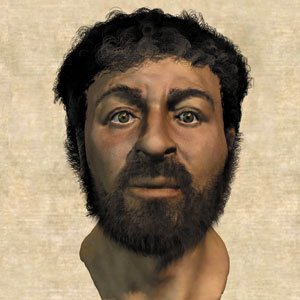
It is a very popular argument these days that no evidence exists that Jesus Christ ever existed. I think because of the powerful appeal of a silver bullet, knockdown argument that would destroy Christianity if true. And it's even better than true from the perspective of a habitual debater; it's supremely defensible in argument. Those two aren't always one in the same.
The "YOU prove to ME Jesus existed" stance, as with "Atheism is the default" puts the other guy on the defensive and makes him do all the work. When really, "Jesus never existed" is a positive claim, even if it can be phrased as "Show me evidence Jesus existed". Of course, that evidence does exist. It's called Christianity.
Before you bite my head off, take a look at this fossil left by a fish. Nobody argues there was never a fish there, because fish are still around for comparison (albeit of different species).

Likewise, nobody argues that petrified wood is just rock that happens to very closely resemble part of a tree. There are still trees, and the process whereby wood becomes petrified is well understood. So even though none of the original tree remains, it's not in question that it was in fact a tree at one point.
What does any of this have to do with Christianity? Well, consider the following traits of early Christianity as laid down in scripture. If you frequently read my posts, this will look very familiar to you and you're welcome to skip it:
- Claims world is ending imminently (1 John 2:18, Matthew 10:23, Matthew 16:28, Matthew 24:34)
- Wants you to give away belongings and follow him ( Luke 14:33, Matthew 19:21, Luke 18:22)
- Wants you to cut off family who interfere (Matt. 10:35-37, Luke 14:26, Matthew 19:29)
- Unverifiable reward if you believe (Heaven, i.e. the carrot)
- Unverifiable punishment if you disbelieve (Hell, i.e. the stick)
- Sabotages the critical thinking faculties you might otherwise use to remove it (Proverbs 3:5, 2 Corinthians 5:7, Proverbs 14:12)
- Targets children and the emotionally/financially vulnerable for recruitment (sunday schools, youth group, teacher led prayer, prison ministries, third world missions)
These things are still around! We call them end of the world cults. Or "botnets" when it's done with computers. There's never been one which had no central founding figure, as they're set up primarily to attract worship to that guy. Why would anybody do this when they'll be long dead by the time it really takes off? Ask the men who've commissioned giant statues of themselves around the world, throughout history, wishing to be remembered in an idealized way.

We have seen cults survive the death of their founders in the modern era (Scientology). We even have some idea of how that happens, psychologically. If you want to witness it yourself I recommend watching this documentary to the end.
We've seen cults based around mythical figures, like John Frum. What we've never seen are founderless cults with this precise anatomy, where the primary requirement for salvation is always to venerate the founder as God, a prophet or whatever else. You don't do that unless the real point of it is to get as many people to worship the guy as possible, for as long as possible.

That's why if you're designing one of these, you include an urgent reason to evangelize ("the end is nigh, the unsaved will burn") pre-emptively sabotage anybody who might try to steal your thunder ("Many will come and say I am he") predict the coming of the time when most people have figured out what you pulled ("There will be a great falling away from the faith in the end times") and persecution of your followers by basically everybody who either recognizes what they've been roped into (and are now trying to spread) or is in a competing one. ("You will be killed because of me", "your enemies will be the members of your own household", etc.

So although the founder and original members are long dead and few relevant writings from the period have survived (the ancient fish), by comparing the religion they left behind (the fossil) to current examples of the same sort of thing (modern fish) we can be relatively certain there was a historical Jesus who founded Christianity.
